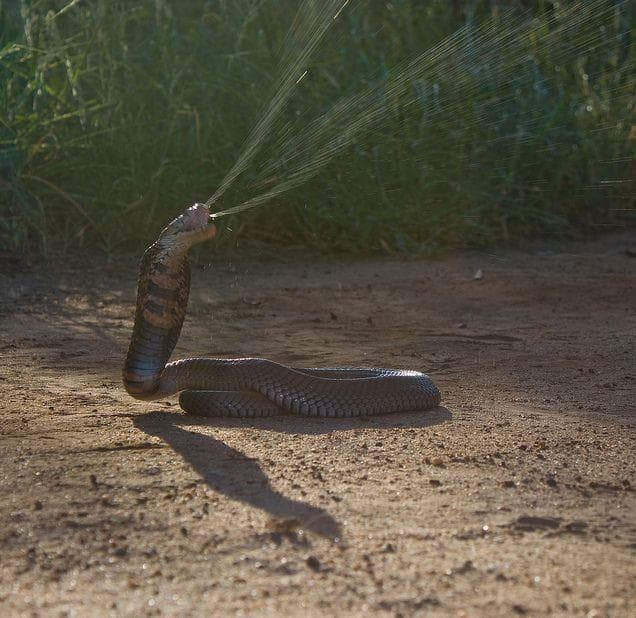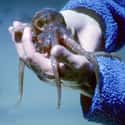-
(#9) Octopuses Love Being Alone
Usually, octopuses only get together for mating season. They prefer to be alone. In fact, because they are feisty and competitive, octopuses in captivity are generally kept in separate tanks. In public aquariums, young octopuses are often raised behind glass dividers of other animals on display.
Source: Facts Legend -
(#3) Octopuses Have Three Hearts
Two of an octopus's hearts move blood though the body, beyond the gills, while the third keeps circulation flowing for its organs. That third heart, called the systemic heart, stops beating when an octopus swims. This is suspected to be part of the reason why octopuses prefer to crawl.
Source: Smithsonian -
(#4) Octopuses Have Blue Blood
Octopuses have evolved a copper-based blood (rather than iron-based blood, like humans have) that allows them to survive in the deep ocean. This type of blood is blue due to a protein called hemocyanin, and it is efficient at transporting oxygen throughout the octopus's body in low temperatures.
Source: Smithsonian -
(#2) Some Female Octopuses Have Deep-Sea Nurseries
In October 2018, scientists discovered a nursery of octopuses off the coast of Monterey, CA. Researchers found thousands of Muusoctopus robustus two miles beneath the surface of the Pacific Ocean, nestling in the rocks. The females' bodies were inverted - or inside-out - which is common for females who are protecting their offspring. Some of the inverted females even had embryos still attached to their tentacles.
"We went down the eastern flank of this small hill, and that's when - boom - we just started seeing pockets of dozens here, dozens there, dozens everywhere," said Chad King, a chief scientist on the Exploration Vessel Nautilus.
Scientists also noted that the water in the area "shimmered, kind of like an oasis or heat wave off the pavement."
This discovery suggests that octopuses brood - or take care of their young - in areas that have warm water, which may help their offspring survive.
-
(#15) Octopuses Have Hidden Beaks
Each octopus has a beak completely hidden inside its head. The beak is made of keratin, the same stuff that makes up human hair and fingernails. An octopus can not show its beak, but uses it to deliver venom to its prey and to crush crabs and mollusks.
Source: Distractify -
(#14) Octopuses Can Smell with Their Arms
Octopus arms are riddled with suckers that do more than just help them move. These cups also assist with their ability to smell.
Source: Distractify
New Random Displays Display All By Ranking
About This Tool
Octopuses are extremely complex, mysterious, and talented creatures with many hidden talents. These invertebrate but colorful marine animals have existed for thousands of years, making the ocean world interesting. They are masters of defense and able to disguise their entire body in seconds, due to the lack of a skeleton, they are very agile and can even grow their lost arms.
For centuries, their unique defense mechanism has fascinated biologists. Various octopuses are widely distributed in tropical and temperate waters around the world. The random tool introduced 21 fun facts about octopuses that most people may not know.
Our data comes from Ranker, If you want to participate in the ranking of items displayed on this page, please click here.
















